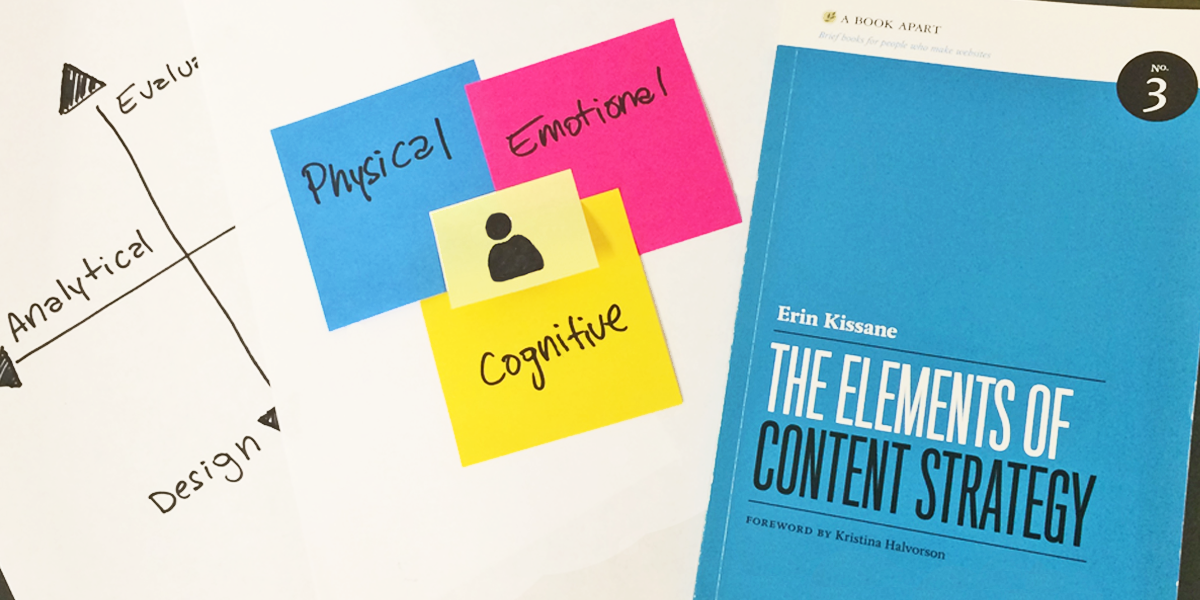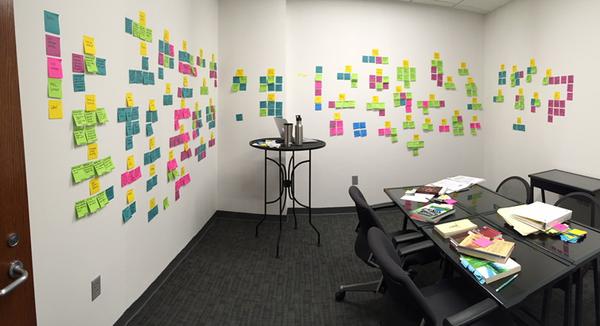
As I refine Center Centre’s Copywriting and Content Strategy course curriculum, I get the opportunity to review a lot of books, articles, videos, and podcasts about content strategy.
While reviewing books, I read Erin Kissane’s The Elements of Content Strategy. I look forward to using it with our students because it provides a thorough, accessible introduction to content strategy. At 79 pages, it’s also a quick read.
Erin explains how content strategy helps organizations meet the needs of their business and the needs of their audience. Content strategy helps organizations plan, create, and maintain useful content. It allows organizations to develop content publishing plans. It cuts costs by reducing redundant or extraneous publishing efforts.
Erin’s book talks about content strategy in the context of real-world UX projects. For example, Erin recommends finishing user research before you evaluate the quality of your site’s content. When you understand your users’ needs, you can assess how well your content meets those needs.
Erin’s holistic approach ties in nicely with our curriculum. As students learn about content strategy, they’ll connect the dots between content strategy and what they learned in user research. They’ll learn how one discipline integrates with and supports the other.
Erin Kissane’s article, “A Checklist for Content Work,” explores some of the topics in her book. If you enjoy this article, you’ll love the book.
Apply to be a student
Do you want to learn more about content strategy and UX design? You’ll learn how to plan, create, and maintain your organization’s content as a Center Centre student. View our full program or apply today.


